Financial Professionals Weigh in on Managing Your Mortgage During...
The mortgage market is thriving thanks to record low rates. But what should you do? Refinance your mortgage, go into forbearance, or maybe renovate...
Aug. 30, 2021

COVID: The Gen Z and Millennial Financial Wake up Call
We began 2020 in a fairly healthy economy—stock market prices were high and unemployment rates were low. The COVID crisis derailed financial securi...
Aug. 30, 2021

In Lock-down? Close on Your Mortgage From the Convenience of Your...
COVID-19 has changed the way we do business. Purchases and transactions that used to require in-person interactions have been replaced with simple ...
Aug. 30, 2021

Choosing the Right Mortgage For You
As you shop for a mortgage, it’s important to understand what each option means for you and your budget. The top mortgage lenders offer a range of ...
Aug. 30, 2021

Learn How You Can Qualify Even With Tougher Mortgage Requirements
As mortgage lenders are raising the bar on their requirements for borrowers, getting a mortgage becomes harder and harder. Now is the time for home...
Aug. 30, 2021

The Fed’s Near-Zero Fed Rates Should Help Borrowers. The Question...
Here is proof that even the darkest clouds have a silver lining. As humanity faces its greatest challenge this century, one small upshot is that bo...
Aug. 30, 2021

Negotiating Mortgage Terms Helped Us Save Money
Buying a house is an exciting time, but it isn’t a stress-free process. Part of the process is getting approved for a mortgage to help pay for the ...
Aug. 30, 2021

Mortgage Approval Rates Are Higher Than Ever
Some good news to brighten the day of prospective homebuyers: you’re more likely to be approved for a mortgage than ever before. Total denial rates...
Aug. 30, 2021

Improve Your Credit Score With These Simple Steps
Applying for a term loan can be difficult and tedious, not to mention all the different eligibility criteria. Applying for a mortgage? Be aware of ...
Aug. 30, 2021

Don't Let Bad Credit Hold You Back, You Have More Mortgage Option...
Times have changed in the world of mortgages. Having less than perfect credit is no longer a big red “X” against you when applying for a mortgage. ...
Aug. 30, 2021

3 Borrowers Tell All: Hear From Real People Who Got an Online Mo...
Traditionally, people take out mortgages at the local banks where they already have an account or through a local mortgage broker that has access t...
Aug. 30, 2021

Our 3 Picks for Mortgage Refinance Lenders in 2026
For those looking to refinance their mortgage there are a lot of lenders to choose from and a number of factors to consider. Each lender has their...
Aug. 30, 2021

3 Home Equity Mortgage Lenders to Look Into in 2026
If you own a property, the value of that property minus the outstanding mortgage is known as equity. With a home equity loan (HEL), you put that eq...
Aug. 30, 2021

Our 3 FHA Lender Picks for 2026
FHA mortgage loans are an attractive option for first-time homebuyers. If you’re looking for your first home and don’t have 20% of the home purcha...
Aug. 30, 2021
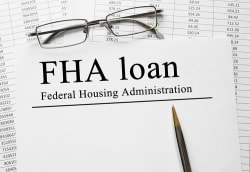
Our 3 Picks for VA Mortgage Lenders in 2026
VA loans make purchasing a first home or getting a second mortgage easier for those currently serving in the armed forces, reservists, veterans, an...
Aug. 30, 2021

Our 3 Picks for 30-Year Mortgage Lenders in 2026
Shopping for a mortgage can be stressful. It’s hard to wrap your head around the various loan types, terms and lenders. It’s time to get down to ba...
Aug. 30, 2021
.20200706061127.jpg)
Home Equity Loans vs. Parent PLUS Loans: Which One is Right for You?
HELs and PLUS loans are just 2 of the ways parents can borrow the money needed to put their children through college. Compare the pros and cons and...
Aug. 30, 2021

The Basics of Mortgage Pre-Approval
What does pre-approval mean when you’re looking to buy a home? Understand how it can help you and how to apply for pre-approval, which can give you...
Aug. 30, 2021
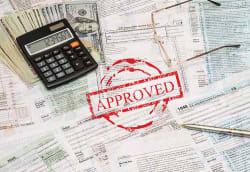
Urban vs Suburban: Location Location Location
The bright lights of the city or the wide, open spaces of the suburbs? It’s one of the biggest dilemmas faced by first-time home buyers. This guide...
Aug. 30, 2021

When is The Right Time to Refinance My Mortgage?
With today’s historic low rates, many people are thinking about refinancing their mortgages and lowering their monthly interest expense. But is it ...
Aug. 30, 2021

Will Paying Off Your Mortgage Early Pay Off For You?
If you have a) a mortgage and b) some spare cash, it might be tempting to use the cash to pay off your mortgage early. After all, who wouldn’t want...
Aug. 30, 2021

Do You Have Negative Home Equity? Here Are Alternatives to HARP R...
The Home Affordable Refinance Program, commonly referred to as HARP or the Obama Refinance Program, is a federal government-backed refinance progra...
Aug. 30, 2021

Cash-Out Refinance Explained
If you’re a homeowner, one way to convert some of that equity into actual cash is with a cash-out refinance.
Aug. 30, 2021

Our List of Top Resources For Millennial Homebuyers
Although the popular image of millennials is of long-term renters who shy away from buying a property, recent market surveys show that this isn’t t...
Aug. 30, 2021

Suspect Mortgage Discrimination? Here Are the Steps You Can Take
If you believe you’ve been ‘redlined’ because of your race, religion, age, or sex, there are a number of ways you can deal with it. Contact your le...
Aug. 30, 2021

Did You Know That You Can Get a No Down Payment Mortgage?
Buying a new house is an exciting process but one big thing stands between you and the home of your dreams — a down payment. If you haven’t been ab...
Aug. 30, 2021

Is a No-Closing-Cost Refinance Right for You?
With interest rates low, now might be a good time to consider refinancing your mortgage. Before agreeing to a new deal at the lowest rate, it is wo...
Aug. 30, 2021

The Ultimate Guide for First-Time Home Buyers
Buying a home for the first time can involve a lot of unfamiliar numbers and terms. Here’s what you need to know about payments, parts of a mortgag...
Aug. 30, 2021

Did You Know That You Can Use Your Home Equity to Help Your Kids ...
Thanks to secondary loans like home equity loans, you can use your home equity to help your kids buy into the property market.
Aug. 30, 2021

Know the Pros and Cons of HELOCs
Most homeowners have heard of home equity loans and cash-out refinance, but neither of these is the most popular product when it comes to home equi...
Aug. 30, 2021

Lowest Drop in Mortgage Rates in Over a Year
US home prices have risen 7% in the past year, yet it’s cheaper to buy now than at certain points in the last 12 months. How could this possibly be...
Aug. 30, 2021
.20190411093828.jpg)
Save Tens of Thousands of Dollars With This Mortgage Hack
When it comes to mortgages, lenders generally let you choose the repayment term but not the frequency of payments. Most mortgage lenders offer a ch...
Aug. 30, 2021

Your Professional Guide to Money Management During Uncertain Times
We gathered four leading on personal finance professionals to discuss the state of the economy, how it affects American households and what you can...
Aug. 30, 2021
.20200816092303.jpg)
Tips for Lower Monthly Mortgage Payments
Your mortgage has been approved, you’ve made your down payment and paid all closing costs, and you’re ready to move into your new home. But your b...
Aug. 30, 2021
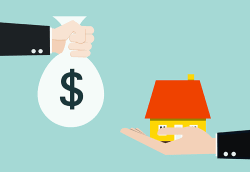
Purchase, Refinance, or Sit Out: How the Fed’s Rate Cut Will Affe...
Mortgage rates hit all-time lows after the Federal Reserve dramatically slashed the benchmark interest rate in March 2020. What’s more, rates will ...
Aug. 30, 2021

Mortgage Rates Are Falling: Secure Your Rate, Don't Wait!
For millions of Americans, buying a home or refinancing an existing mortgage is about to get easier. Here's some background about the current mortg...
Aug. 26, 2021

FHA Loan Guide for Buyers With Low Credit
If you want to buy a new home, but have a low credit rating or don’t have a lot of cash, you may consider applying for a Federal Government-backed ...
Aug. 26, 2021

Choosing a Mortgage Lender as First-Time Home Buyer
To first-time home buyers, the mortgage application process may seem like a whole new world, with different terms and rules to learn, and so many d...
Aug. 26, 2021
.20201101074618.jpg)
What Will it Cost to Refinance Your Mortgage?
Refinancing can be an easy way to afford large expenses like home renovations or college, to lower your interest rates (and therefore payments) or ...
Aug. 26, 2021
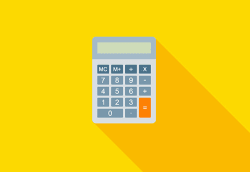
The What, How, and Who of Reverse Mortgage
If you’re retired or semi-retired, own your own home, and are looking for extra income to fund a home renovation, medical costs, or other significa...
Aug. 26, 2021

Should You Rent or Buy?
Almost everybody will face the question at some stage in their lives of whether to rent or buy a property. We all need somewhere to live, and while...
Aug. 26, 2021
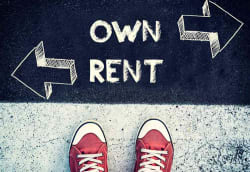
Get These 10 Answers From Your Mortgage Lender
You’ve narrowed your search down to a short list of lenders, or perhaps you’ve even been pre-qualified for a mortgage. The next part is beginning y...
Aug. 26, 2021

Don't Miss Your Chance to Save With Refinance Rates at a 50 Year Low
Mortgage rates are the lowest they’ve been since they started tracking them in 1971!
Aug. 25, 2021

Mortgage Rates are Rising Again - How Does this Affect You?
Amid all the chaos of the past year, there is a silver lining for borrowers: Near record-low interest rates.
Aug. 25, 2021

Self Employed? Here's How to Qualify for a Mortgage
More and more people in the US self-employed, whether freelancers, entrepreneurs, or small business owners. The advantages of being self-employed a...
Aug. 25, 2021

How to Choose the Right 15-Year Mortgage Lender for You
So, you’re in the market for a house? You’ve probably been reading up on all there is to know about taking out a mortgage. The basics are pretty st...
Aug. 25, 2021

When is the Right Time to Refinance?
Refinancing your home loan can save you a lot of money in the long run. However, there are some things to be aware of. In this article, I'm going t...
Aug. 25, 2021

6 Tips to Secure a Mortgage With Student Loan Debt
Many millennials dream of buying their own home, but feel held back by their student loan debt. Although student loan debt is a burden, it doesn’t ...
Aug. 25, 2021

Your Guide to VA Home Loans
If you are an armed forces veteran and are planning to apply for a mortgage on a new home or refinance an existing loan, you might be eligible to s...
Aug. 25, 2021

Finding Low Mortgage Rates in 2026
Mortgage rates are little numbers that are a big deal for anyone looking to purchase or refinance a home. Interest rates are a percentage of the ov...
Aug. 25, 2021

Looking For a Mortgage But Don't Know Where to Start? Check Out T...
The American mortgage industry is competitive, with around 12,000 institutions offering home loans at last count. With so much choice, it can be ha...
Aug. 23, 2021
%20(1).20190402143636.jpg)
The Top Lenders for Mortgage Refinance of 2026
If you’ve been paying a mortgage for some time now and would like to get more favorable loan terms, then you may want to consider refinancing your ...
Aug. 23, 2021

What is the Difference between a Mortgage and a Mortgage Refinance?
The more you understand about your home and the mortgage you pay, the easier it will be to sort through your finances and have realistic expectatio...
Aug. 23, 2021

Make Confident Decisions With LendingTree's Home Valuation Tool
LendingTree’s Home Valuation Tool helps you make an informed decision for when it’s a good time to sell, or hold onto, you home. Learn about your h...
Aug. 23, 2021

A Self-Employed Home Buyer's Guide to Choosing the Right Mortgage...
About 10% of Americans are self-employed as small business owners, entrepreneurs, or freelancers. You probably know about the many advantages of be...
Aug. 23, 2021

Your Guide to Taking Out a Mortgage in 2026
Unless you're one of the lucky few that can purchase a home for cash, you're likely to need some kind of a loan to realize your dream of home owner...
Aug. 23, 2021

Don't Let Bad Credit Stand Between You and A New Home
Bad credit may seem like it stands between you and a new home purchase. Fortunately, there are ways to get a mortgage even with bad credit.
Aug. 23, 2021

Jumbo Mortgage Loans in 2026
A jumbo mortgage is exactly what is sounds like: A huge loan to buy a house. But “jumbo” is not just in the eye of the beholder; rather, a loan is ...
Aug. 23, 2021

Mortgage Discrimination is Real, Know Your Rights
The dream of buying a house is one that many can relate to. For many of us, saving the money for a down payment can seem like the most difficult pa...
Aug. 23, 2021

Our Top Recommended Second Mortgage Lenders in 2026
Own a home and in need of a loan? One of the most convenient ways to secure the large amount of cash you need to fund that renovation, medical bill...
Aug. 23, 2021

Quicken Loans vs LendingTree: How to Choose the Right Lender for You
When shopping around for a mortgage, is it recommended to start your search with a marketplace or by going straight to a direct lender? Put this to...
Aug. 23, 2021

7 Critical Elements to Examine Before Choosing a Mortgage
When purchasing a home, a mortgage is almost always an inevitability. To ensure the best outcome, it’s important to plan ahead and make a decision ...
Aug. 23, 2021

Familiarize Yourself With These Common Mortgage Terms
Applying for a mortgage involves a lot of confusing numbers, but it's actually the words around those numbers that you should be focused on. Learni...
Aug. 23, 2021

6 Common Mistakes Young Homebuyers Make
The time has finally come. You’ve worked hard, you’ve saved up some money and you’re finally ready to put down some roots. It’s time for you to rea...
Aug. 23, 2021

How to Choose the Right Home for You
Buying a house isn’t only the biggest financial decision most people make - it’s also the most personal. There is no one-size-fits-all house, espec...
Aug. 23, 2021

Is Refinancing Your Mortgage the Right Move for You?
Times change, so why shouldn’t your mortgage? Mortgage refinancing (sometimes referred to as taking out a second mortgage) can help you save money,...
Aug. 23, 2021
